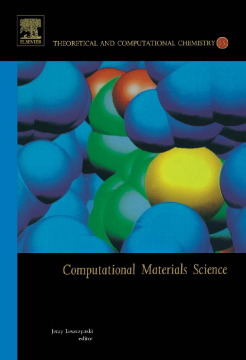
Additional Information
Book Details
Abstract
Computational tools have been permanently deposited into the toolbox of theoretical chemists. The impact of new computational tools can hardly be overestimated, and their presence in research and applications is overwhelming. Theoretical methods such as quantum mechanics, molecular dynamics, and statistical mechanics have been successfully used to characterize chemical systems and to design new materials, drugs, and chemicals. This volume on Computational Material Sciences covers selected examples of notable applications of computational techniques to material science. The chapters contained in this volume include discussions of the phenomenon of chaos in chemistry, reaction network analysis, and mechanisms of formation of clusters. Details of more practical applications are also included in the form of reviews of computational design of new materials and the prediction of properties and structures of well known molecular assemblies. Current developments of effective computational methods, which will help in understanding, predicting, and optimizing periodic systems, nanostructures, clusters and model surfaces are also covered in this volume.
- Reviews of current computational methods applied in material science
- Reviews of practical applications of modelling of structures and properties of materials
- Cluster and periodical approaches
